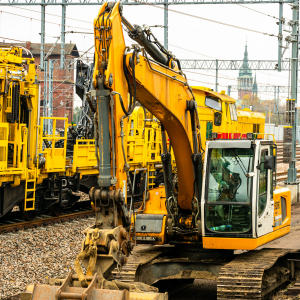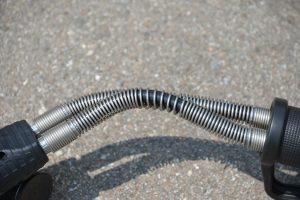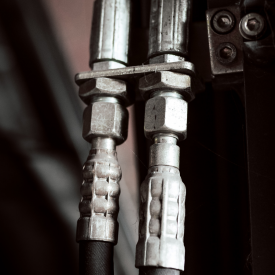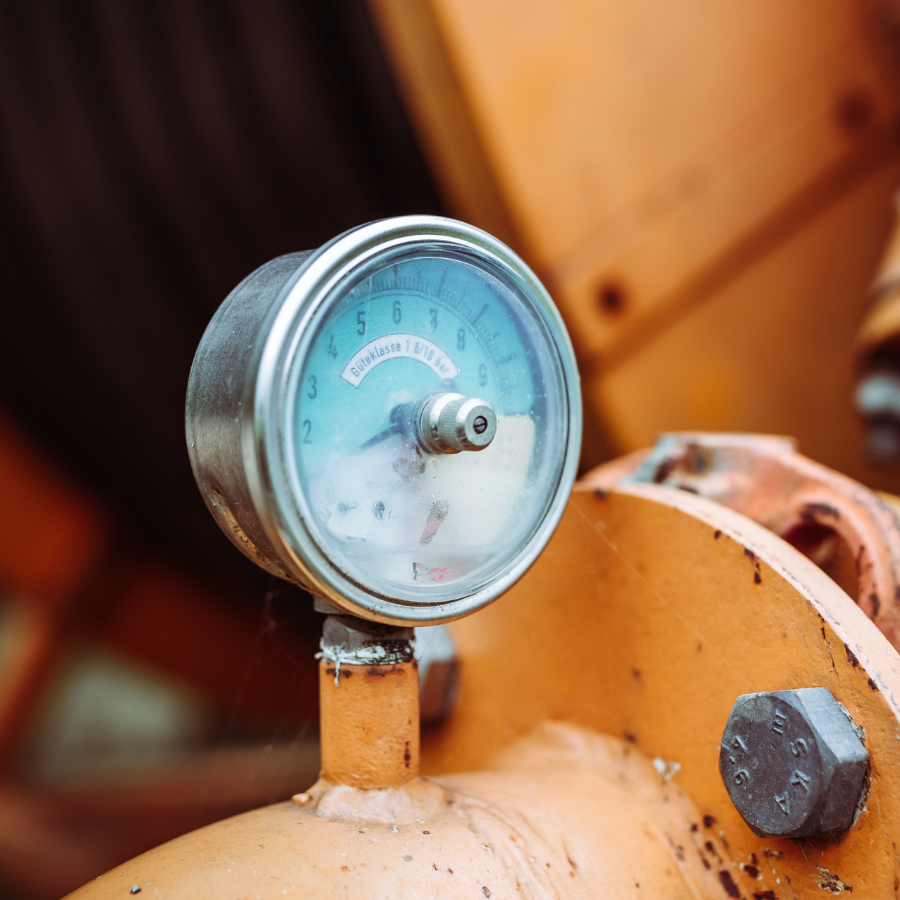Hydraulic Hose Failure Reasons & How To Prevent Them
Prevent Future Hydraulic Hose Failures with These Quick Inspection Tips
Hydraulic Hose failure is no joke, not only can it be dangerous, but it also can leave you without an important piece of machinery sometime as the hose gets fixed or replaced. While sometimes there is not anything you can do to prevent your hydraulic hose failure, there are various routines that you can adopt in order to stop waiting for your next hydraulic hose to fail you with poor timing. Here are 10 top reasons behind hydraulic hose failure, and a few tips & things you can do to do your best in preventing it from happening.
1.
Site Damage
Site damage is a direct result of the conditions that your machine is in. This will mostly be seen in aggressive conditions such as construction sites. The hydraulic hoses in these situations are easily subject to more abuse, at times being hit or busted on by other high density objects like steel and concrete – the scenarios are endless. Now this is something that an operator can only do so much to prevent. The best thing someone can do to help prevent site damage to the point of hose failure is regularly checking over your machine, making sure that all pieces are in good condition, and when you begin to see a piece of any hydraulic hose starting to show noticeable wear there are options such as metal or textile reinforcement sleeves that will help prolong the hydraulic hose life until you can schedule it for maintenance accordingly allowing you to will help prevent a sudden hydraulic hose failure in the middle of a project so that you do not have to go without a machine in a poor situation.


2.
Wear & Tear
General wear & tear isn’t something that you can really truly prevent. Just like any thing else, hydraulic hoses are meant to be used! With use will come wear and tear, but similarly to site damage, the thing you CAN prevent is hydraulic hose failure in the worst time possible. With a routine maintenance check of your equipment you can keep a look out for hoses that might be rubbing incorrectly, missing clamps, cracked hosing or anything else that could lead to a equipment crisis. Taking the time to go through a routine check over will exponentially lessen the likelihood of your machine failing you at a bad time.
3.
Contaminated Fluid
The fluid that is running through your hose can cause just as much damage as anything else to your hydraulic hoses. As pieces of the system break down, small fragments of various origins can create abrasions on the inside of your system. Contaminated fluid can also be a result of improper maintenance. In order to lessen the likelihood of contaminated fluid in your hoses, be sure to properly read the instruction manual & follow the steps in regards to changing your machines oil & filters. In addition to that, it’s a good idea to add to your list of routine maintenance to take small samples of your hydraulic fluid to ensure purity & lack of external particles.
4.
Tube Erosion
Another common cause of hydraulic hose failure is tube erosion. This is generally caused by a concentrated high velocity fluid traveling through the hose. To best prevent tube erosion, it is important to have the correct size hoses for your machine & for the amount of fluid & pressure that they will be undergoing. If you have questions about what the proper size hose is for your specific situation & machine, please Contact Us Today, we are happy to help you!

5.
6.
Non Compatible Fluid
Believe it or not, hydraulic hoses are not all things to all fluids…that seems obvious right? The fluid you run must be compatible with the corresponding hose, if not, you run the risk of many complications such as hose disintegration, swelling, and leaking, which can in then turn into a much larger issue such as system contamination.
Bend Radius Exceeded & Kinks Manifesting by Fittings
A bend radius is very important to take notice of and keep in mind as you use your hydraulic hoses, ignoring the recommended bend radius can easily shorten the life of your hydraulic hose through kinking, & crushing your hose. Not only does it weaken the hose, but as the bend radius is exceeded, there is less and less space for the fluid inside the hose to move.
7.
8.
Heat Aged
Not only over heating but under heating as well can cause damage to your hydraulic hoses resulting in failure. Over heating will cause the outside of your hydraulic hoses to harden & in some cases crack creating a weak piece in the puzzle. It’s important to try your best not to let your machinery over heat letting them rest as needed, if that is not possible, it’s important (once again) to do routine checks of your machinery making sure that they are properly functioning & in good condition.
Improper Assembly
This is possibly one of the most dangerous reasons behind hydraulic hose failure! If you are allowing someone to assemble or replace pieces and hoses on your hydraulic machinery, it is important that they fully understand exactly what they are doing. It’s important that the pieces are carefully cleaned & flushed to prevent fluid contamination. The pieces must be fit together at the proper length & with proper force. Fittings should be crimped into place correctly & the ends of the hoses need to be properly adjusted. Done incorrectly can lead to serious destruction, leaks & issues in your machinery.

9.
Poor Planning & Routing
Many hydraulic hose failures could be prevented with better routing & planning of the machine. Poor routing can be the cause of two different hoses rubbing together causing friction & potential abrasions. While working on your machinery, make sure to read through your manuals to route your hydraulic hoses correctly to minimize friction between hoses, or other routing issues. Another way to prevent poor routing is to have an experienced hydraulics technician work on your machinery, this will give you the confidence in a job well done.

10.
Improper Hose Length/Width
Improper hose length & width can be a quick way to create hydraulic hose failure that could potentially leave you in a really poor position. Too short of a hose will not leave enough room for the expansion & contraction of the hose through use. Be sure to research your machine & read the manual to make sure that you are replacing or adjusting the hose properly & with the correct size hose.
These are 10 of the top hydraulic hose failure reasons, but they are not ALL of the reasons. Be sure to keep a routine of checking of your equipment regularly, along with the hydraulic hoses & all pieces related & remember, not all hydraulic hose failures can be prevented.
If you are unsure how to properly bring the above preventative measure to completion & need help repairing or replacing your hydraulic hoses, please contact us today – we are more than happy to help you!


